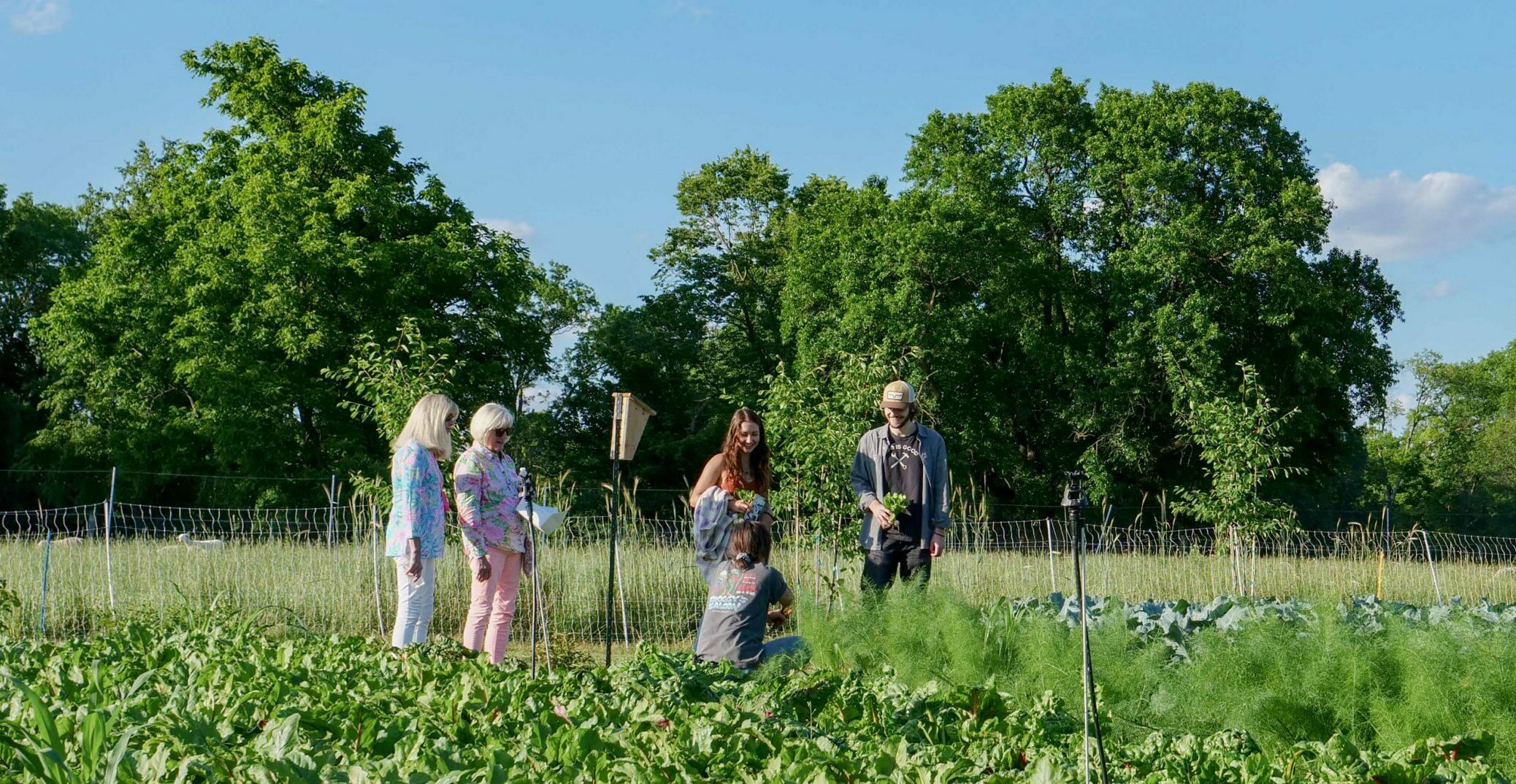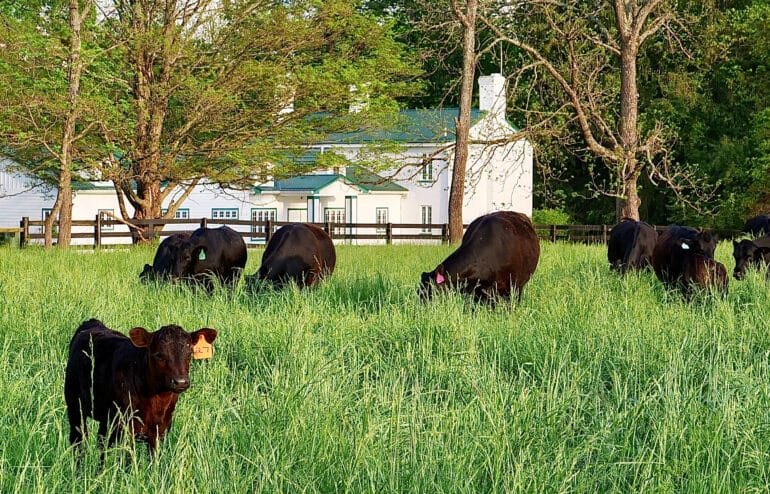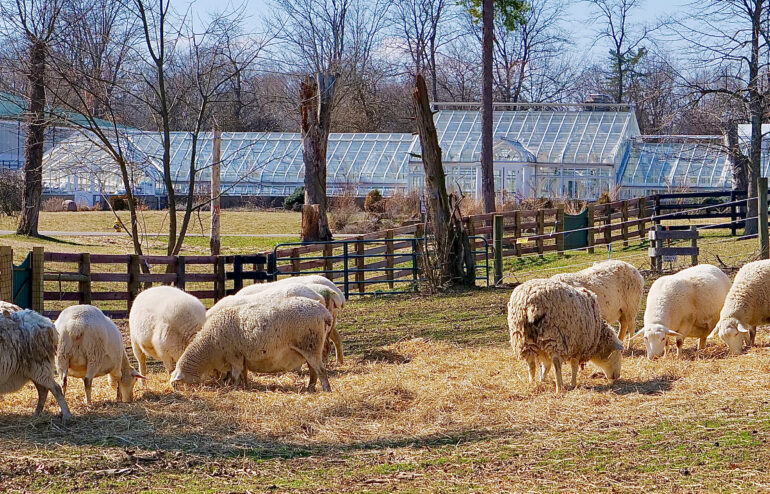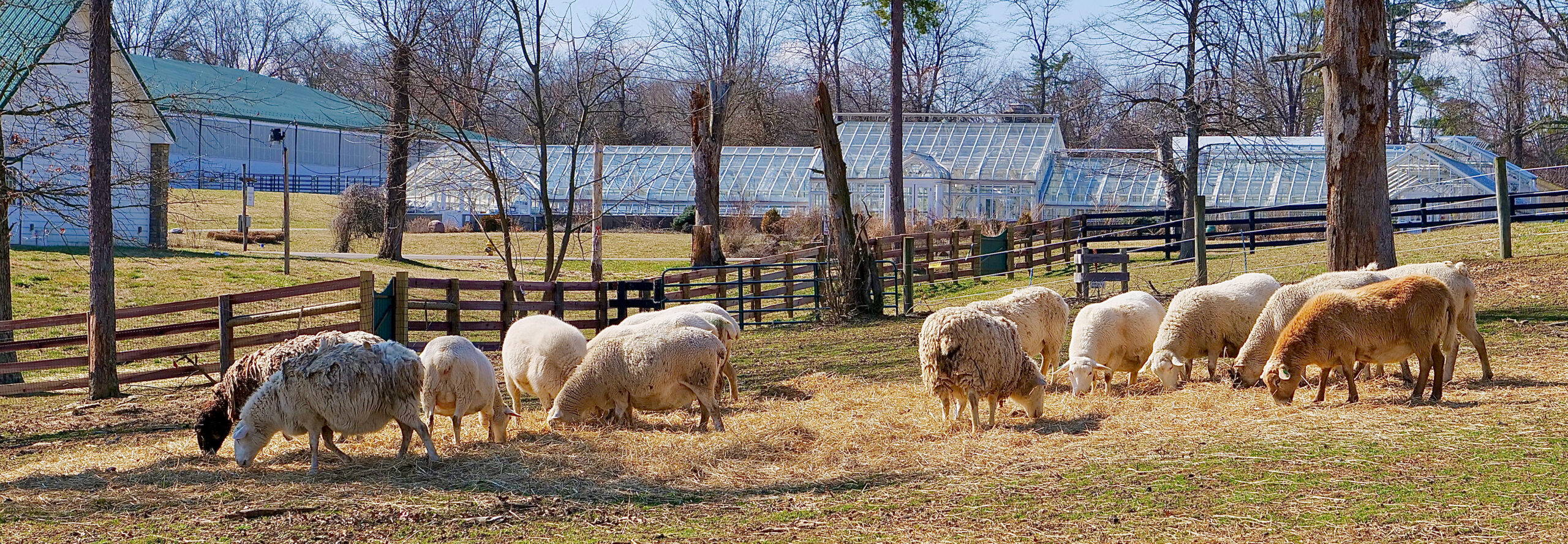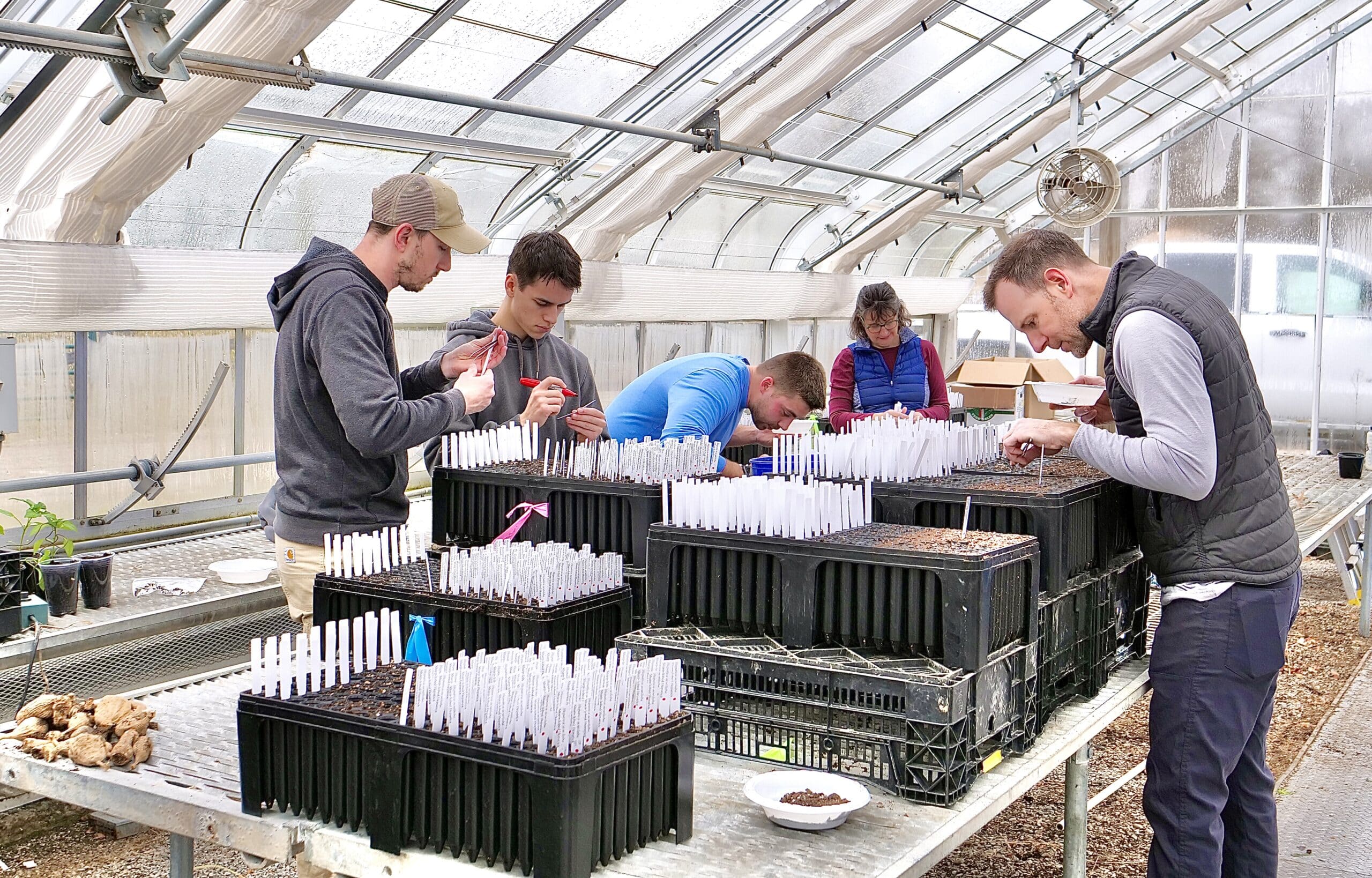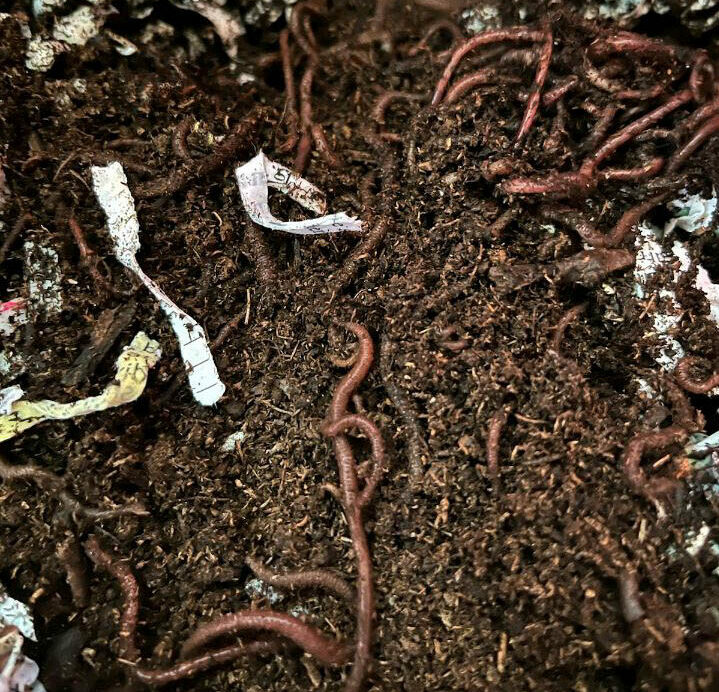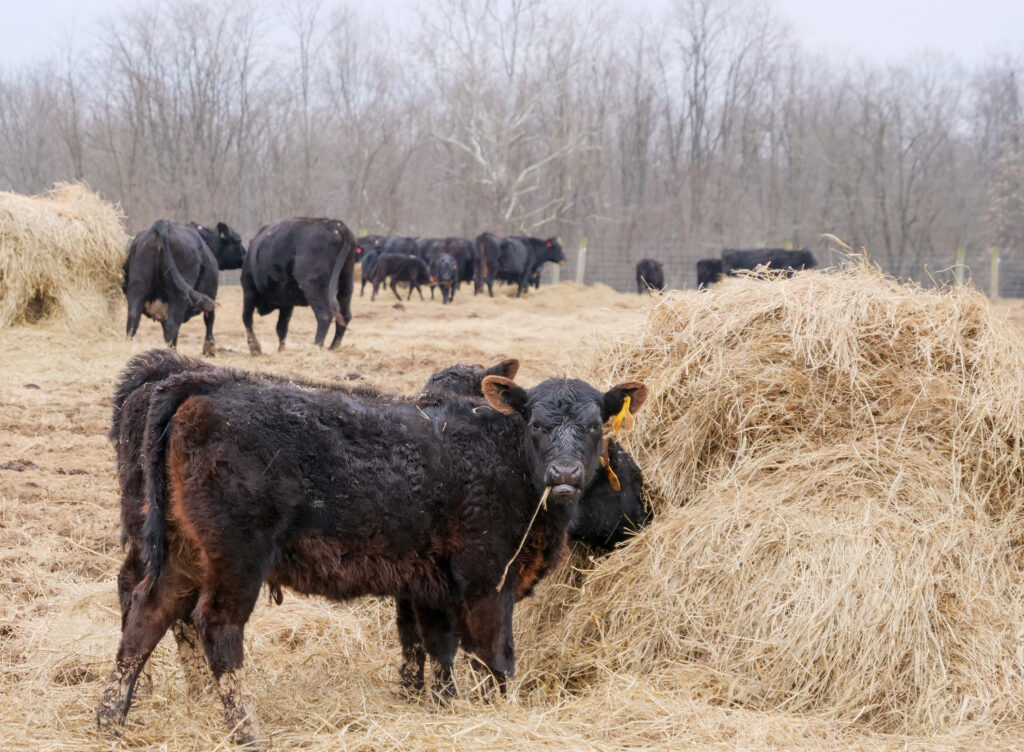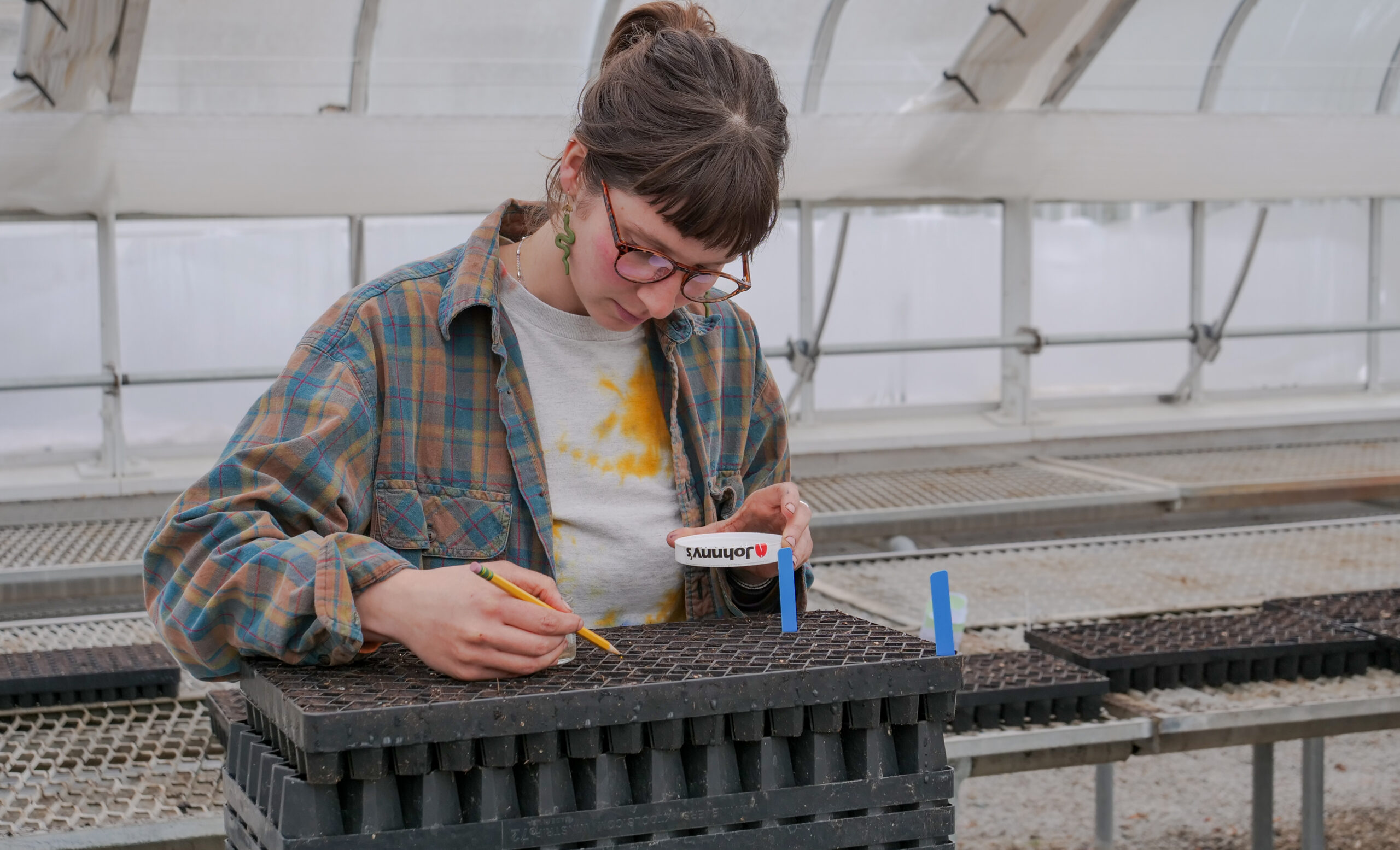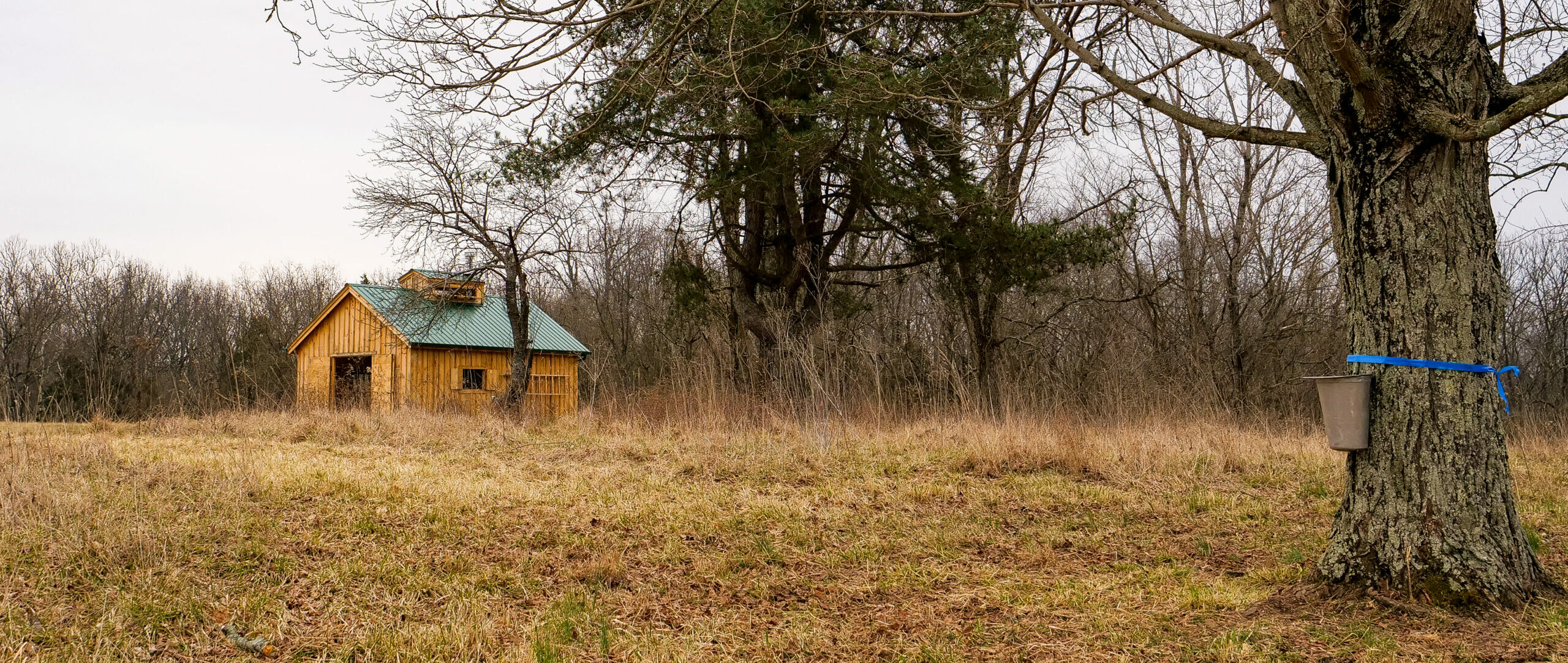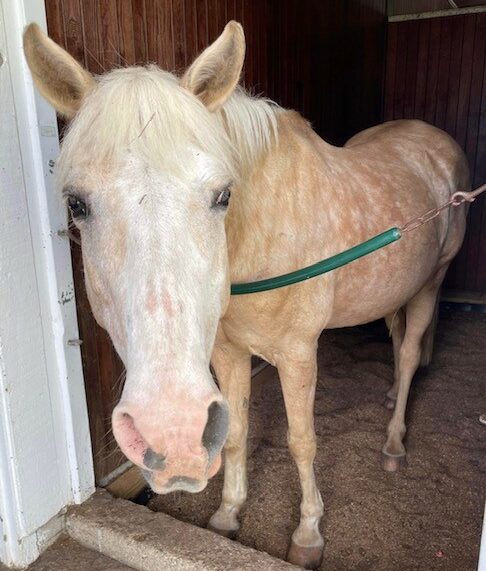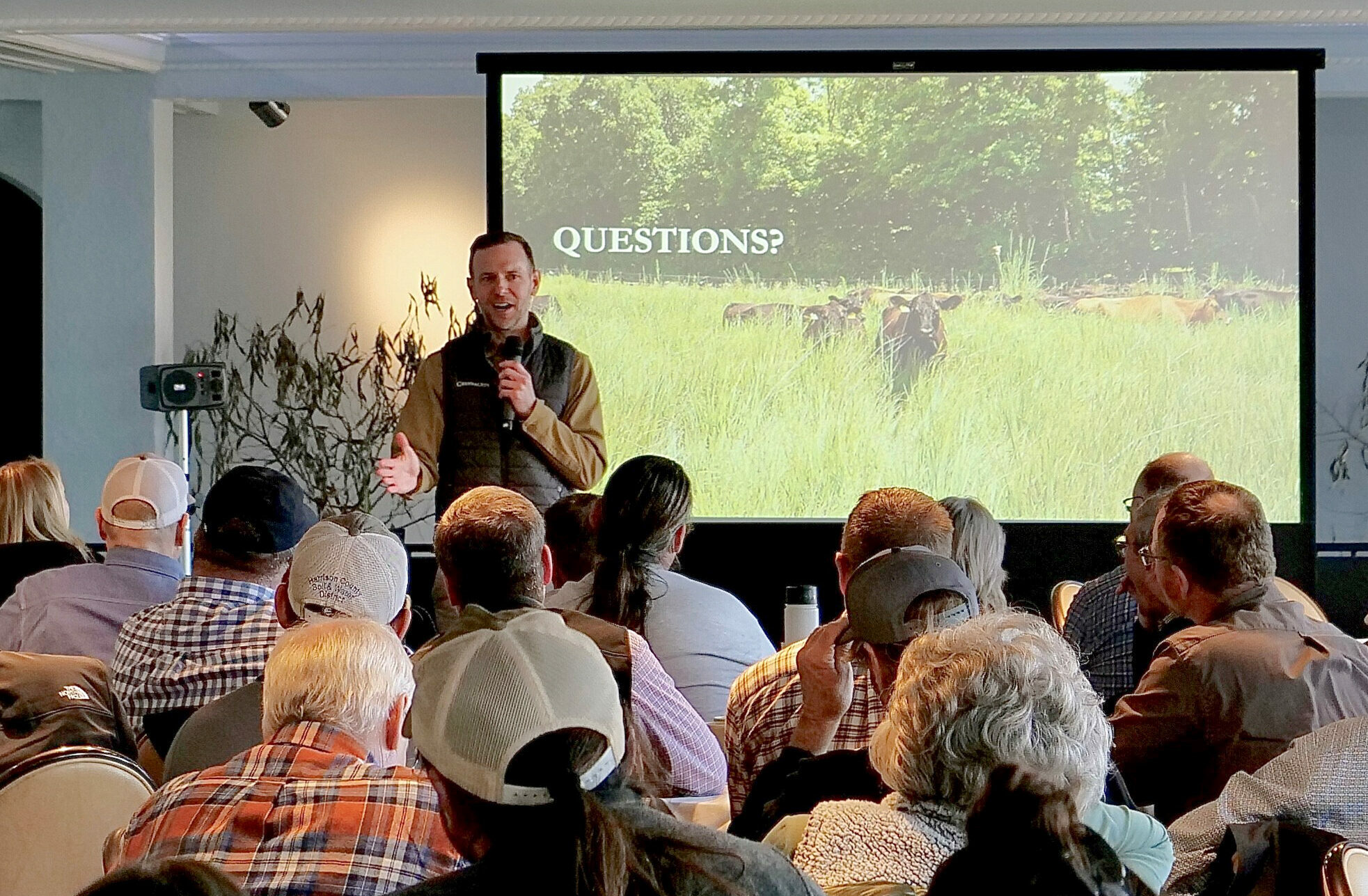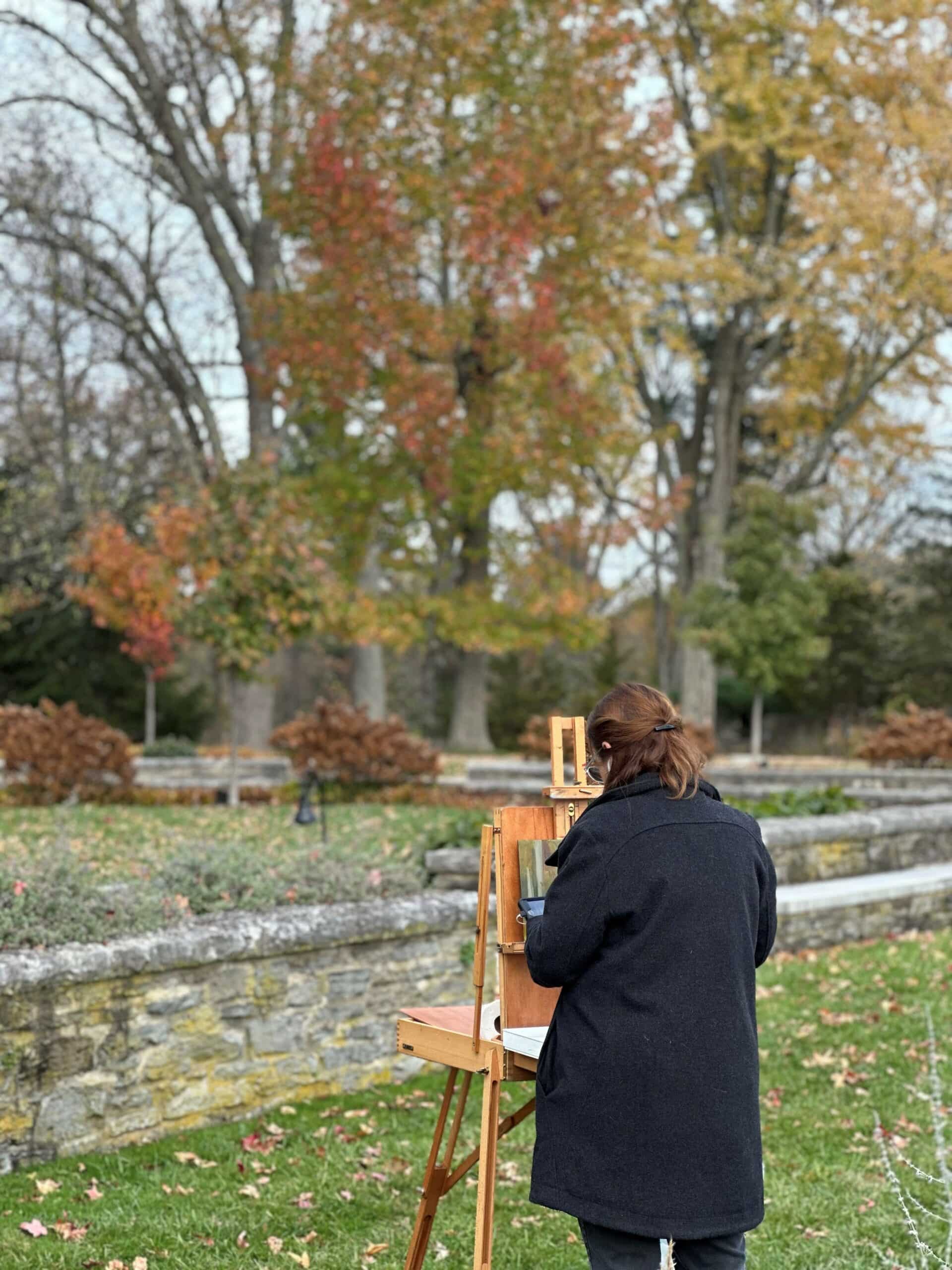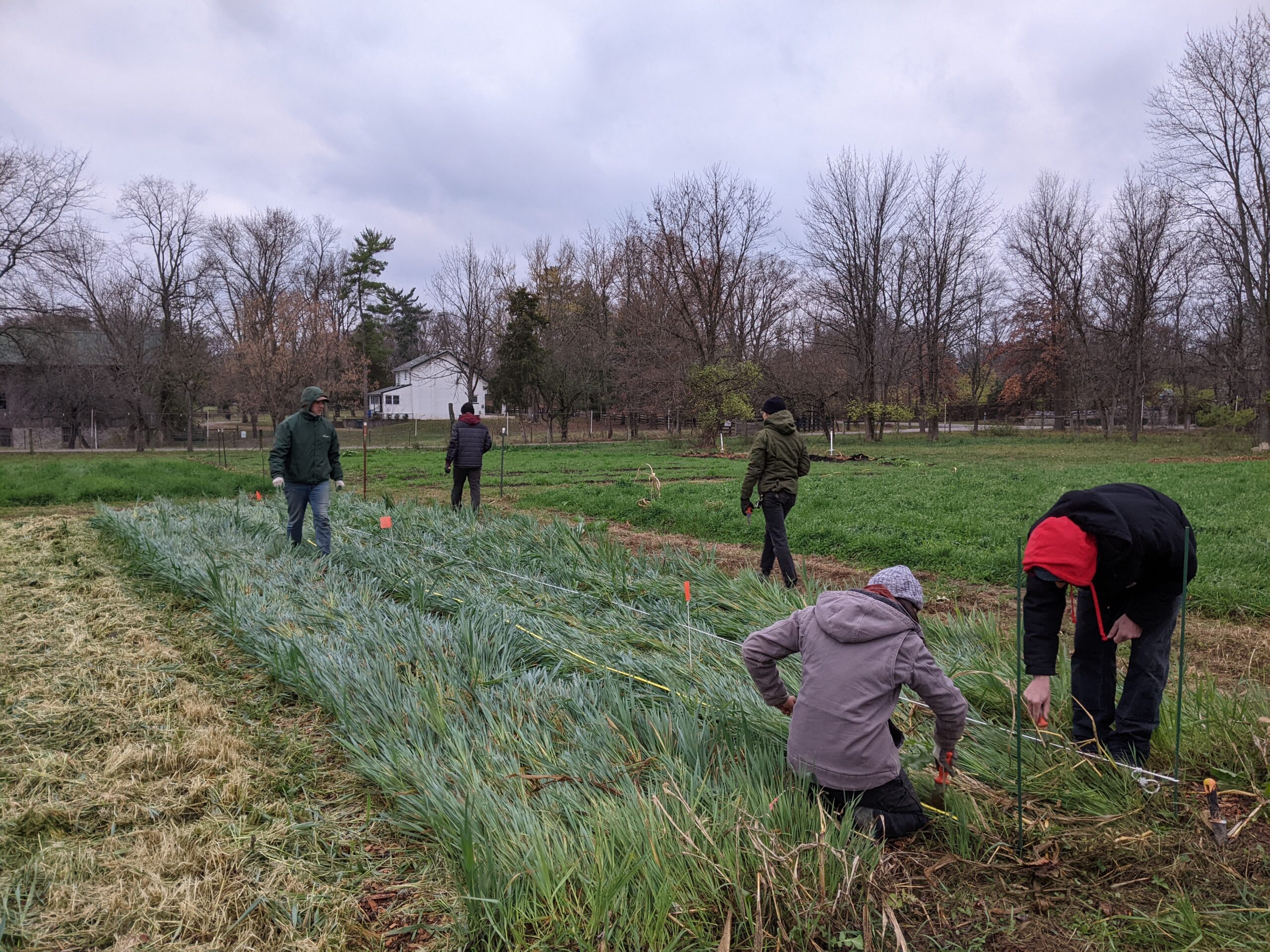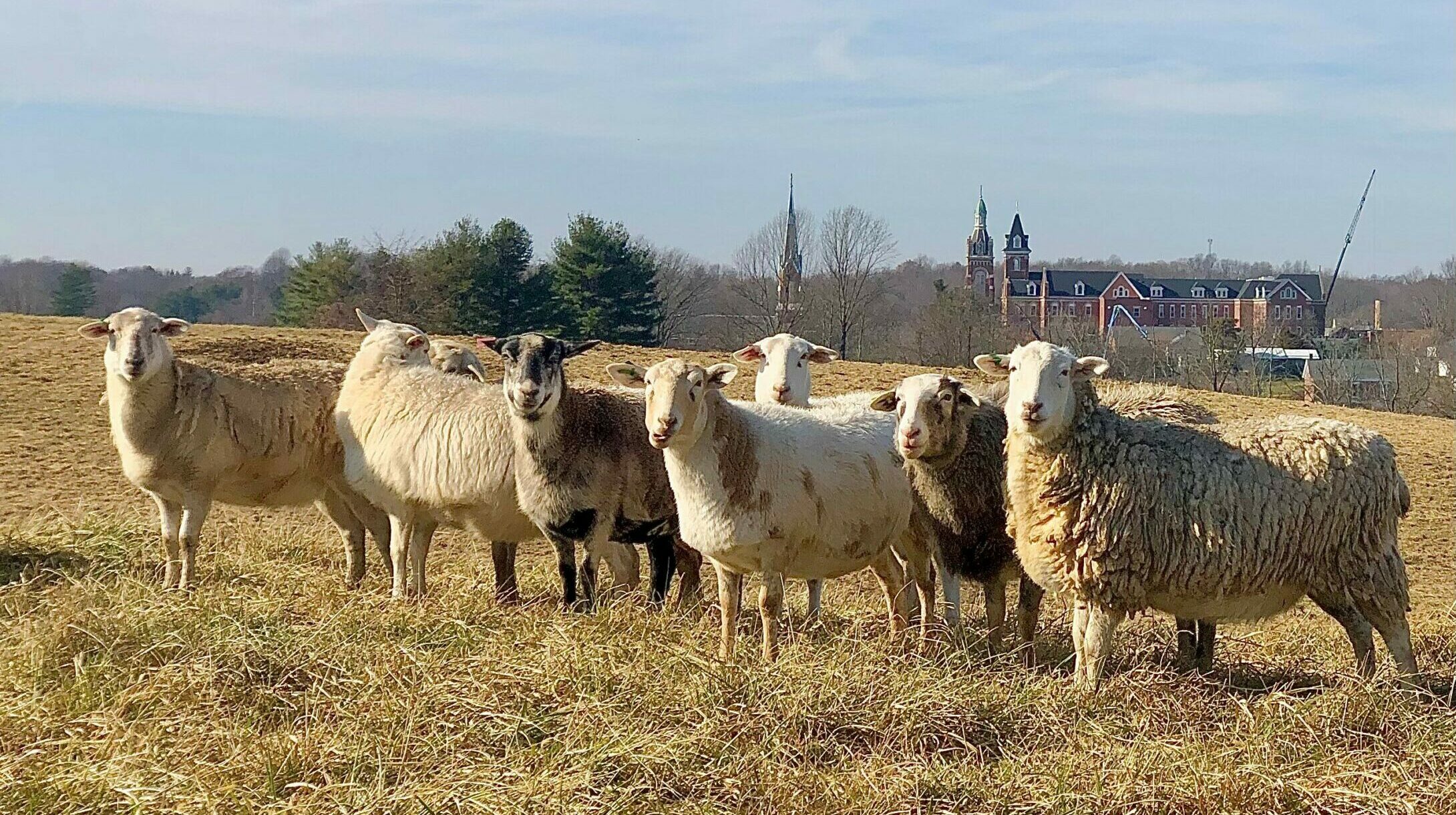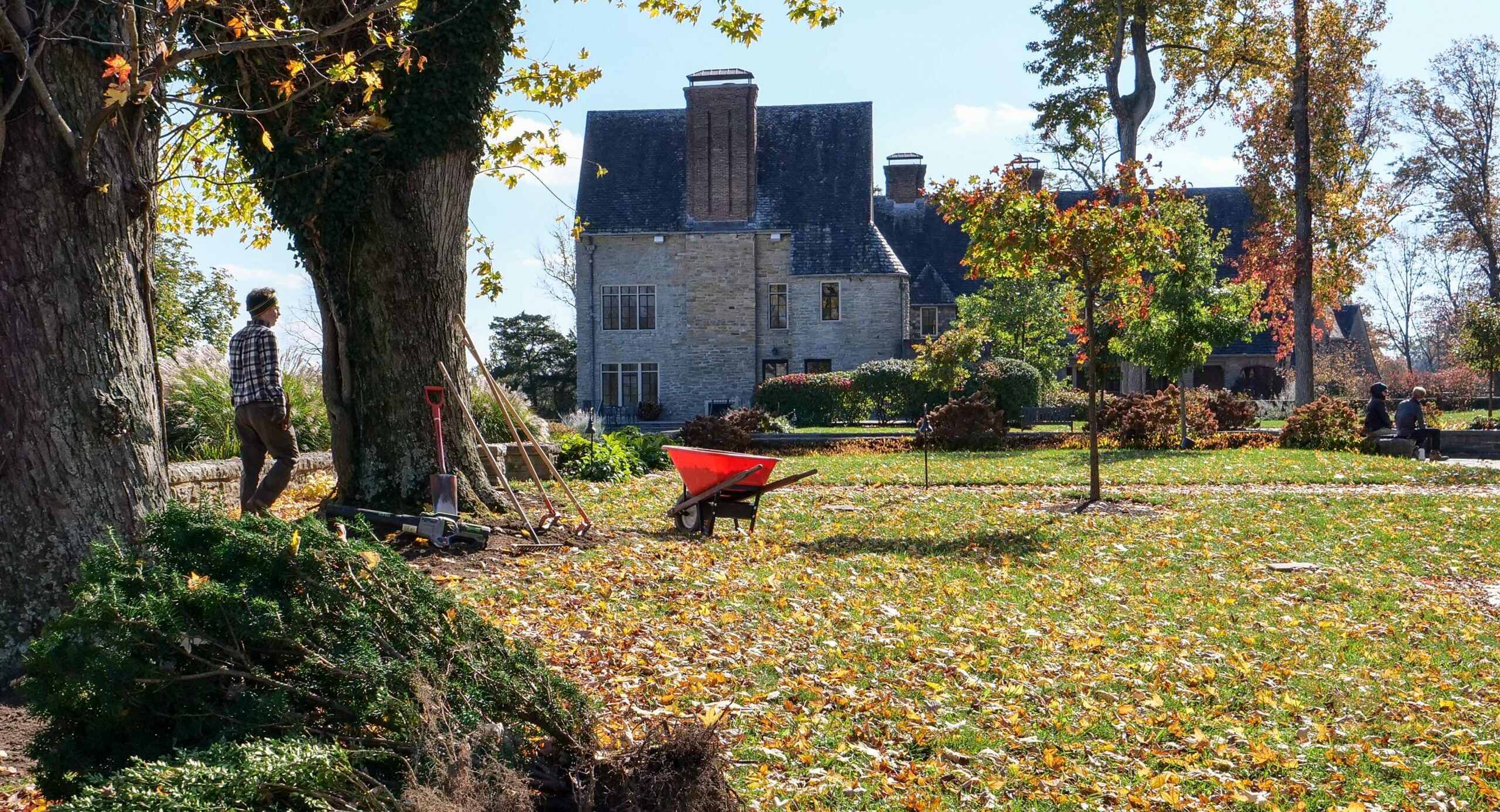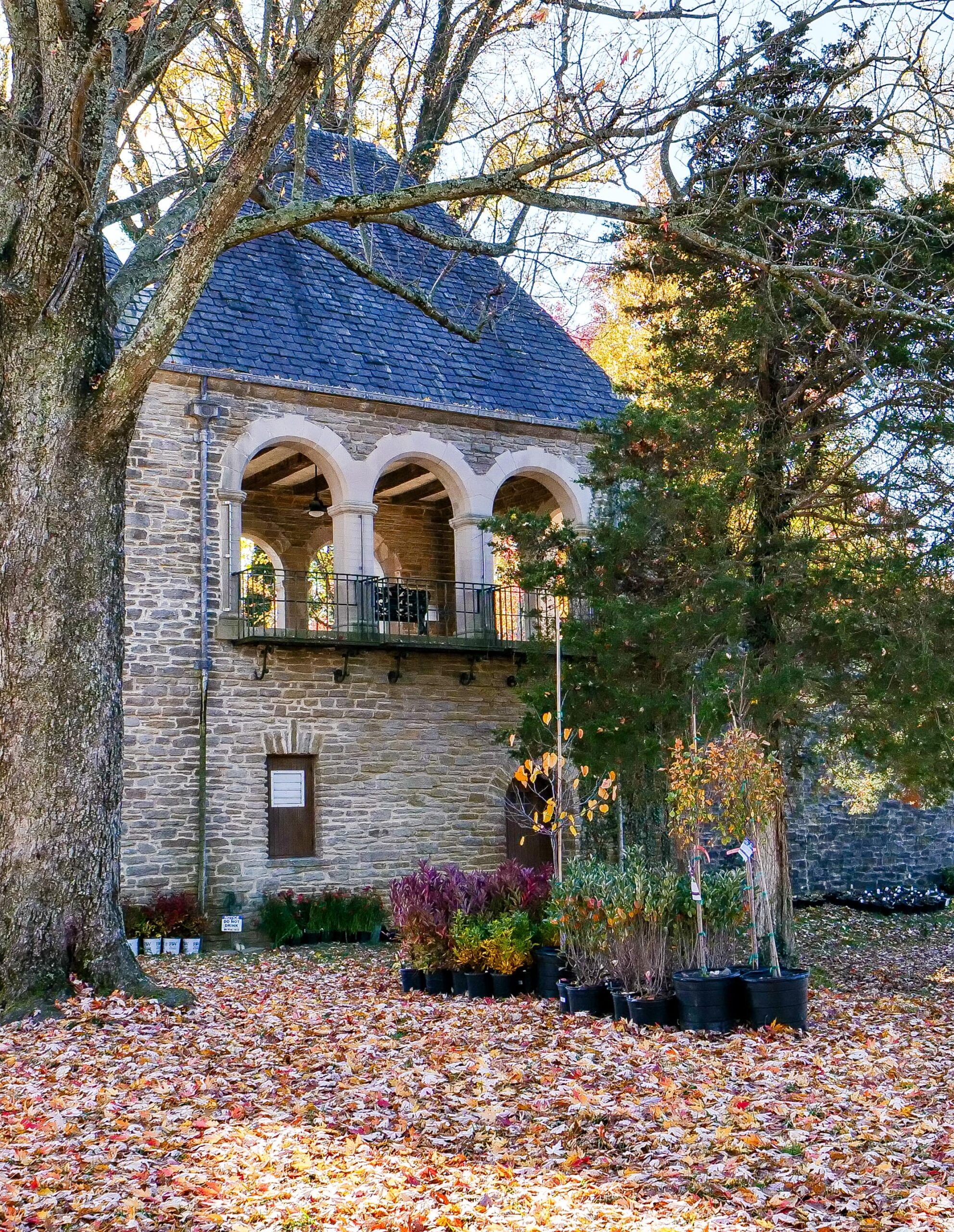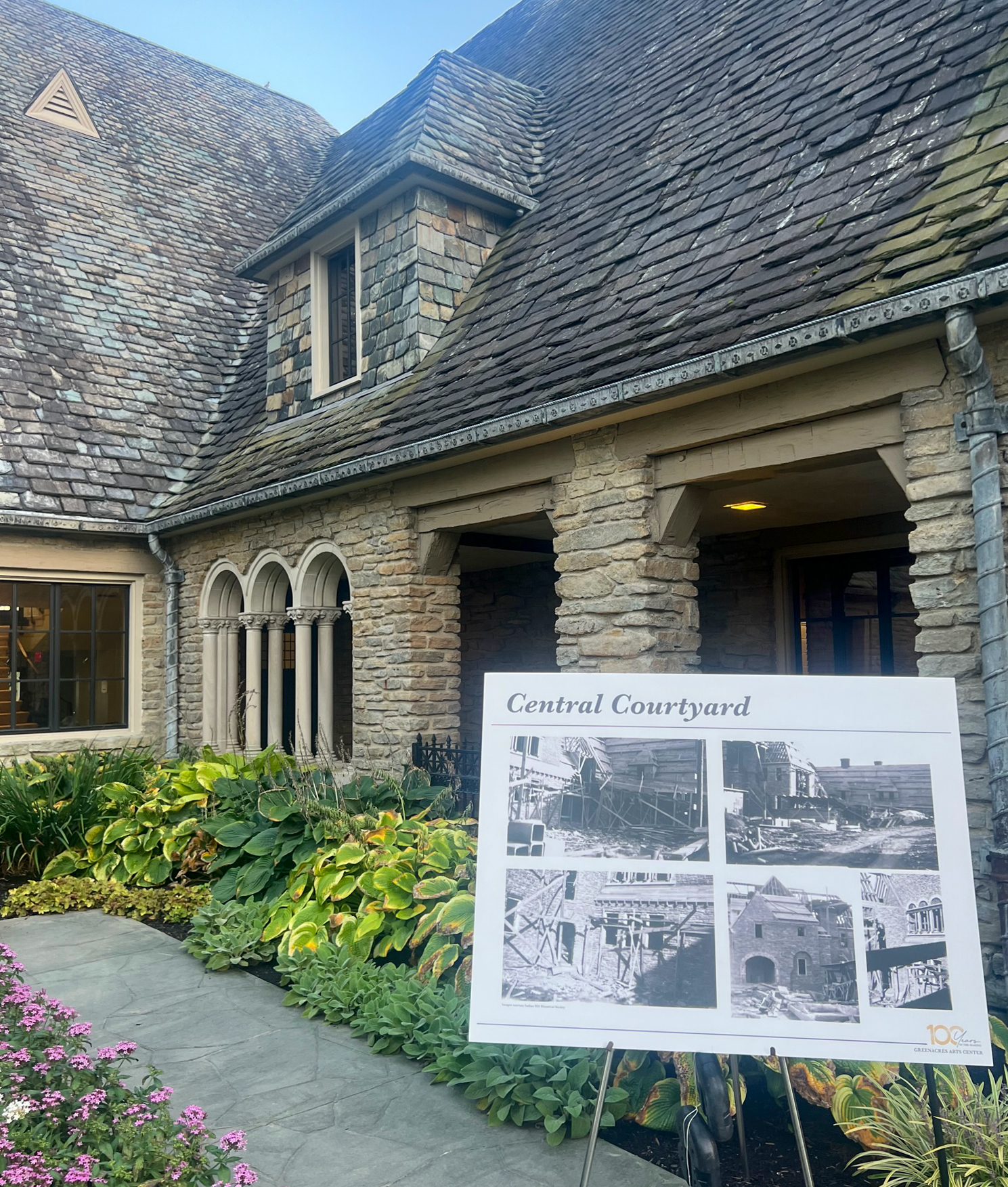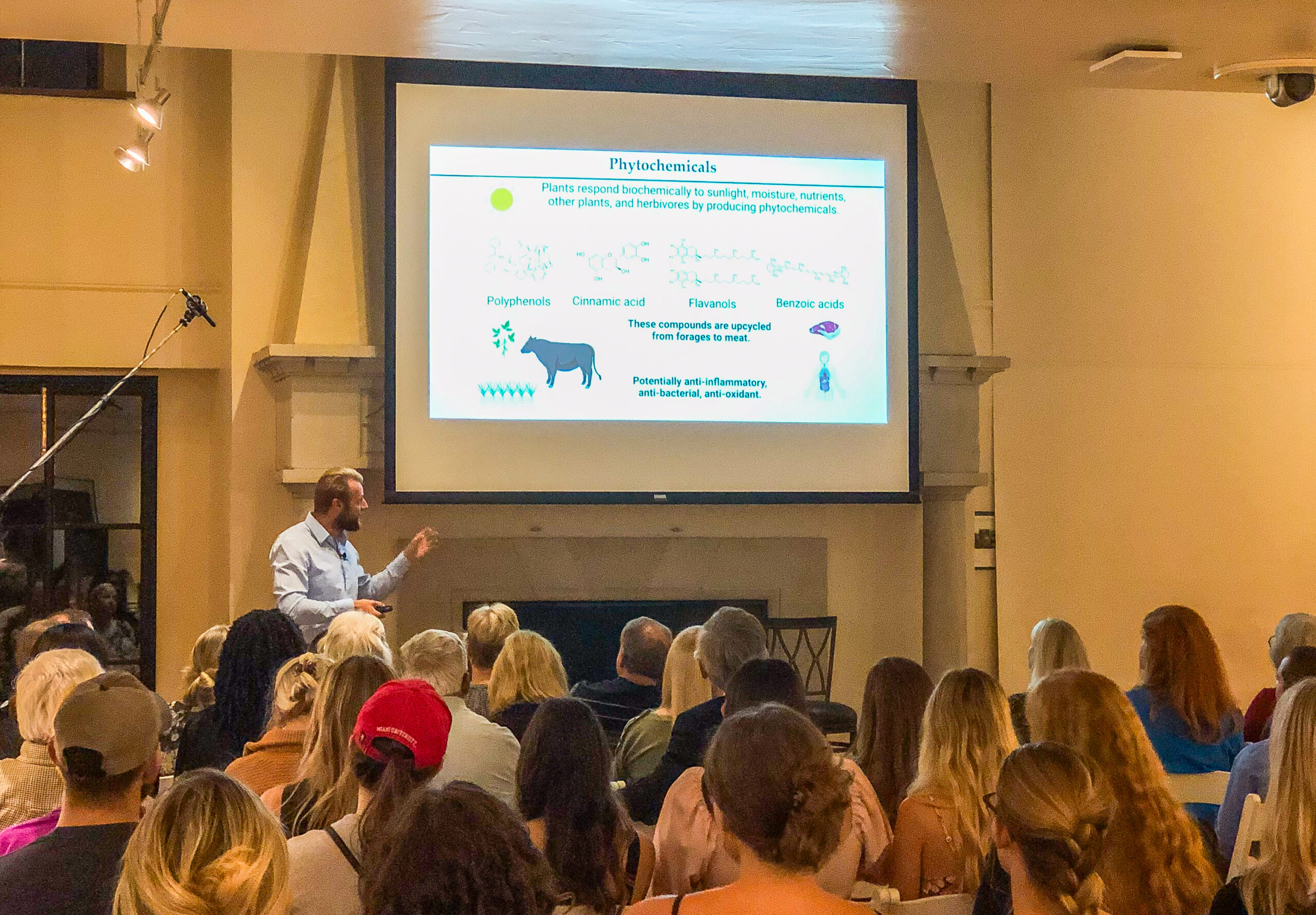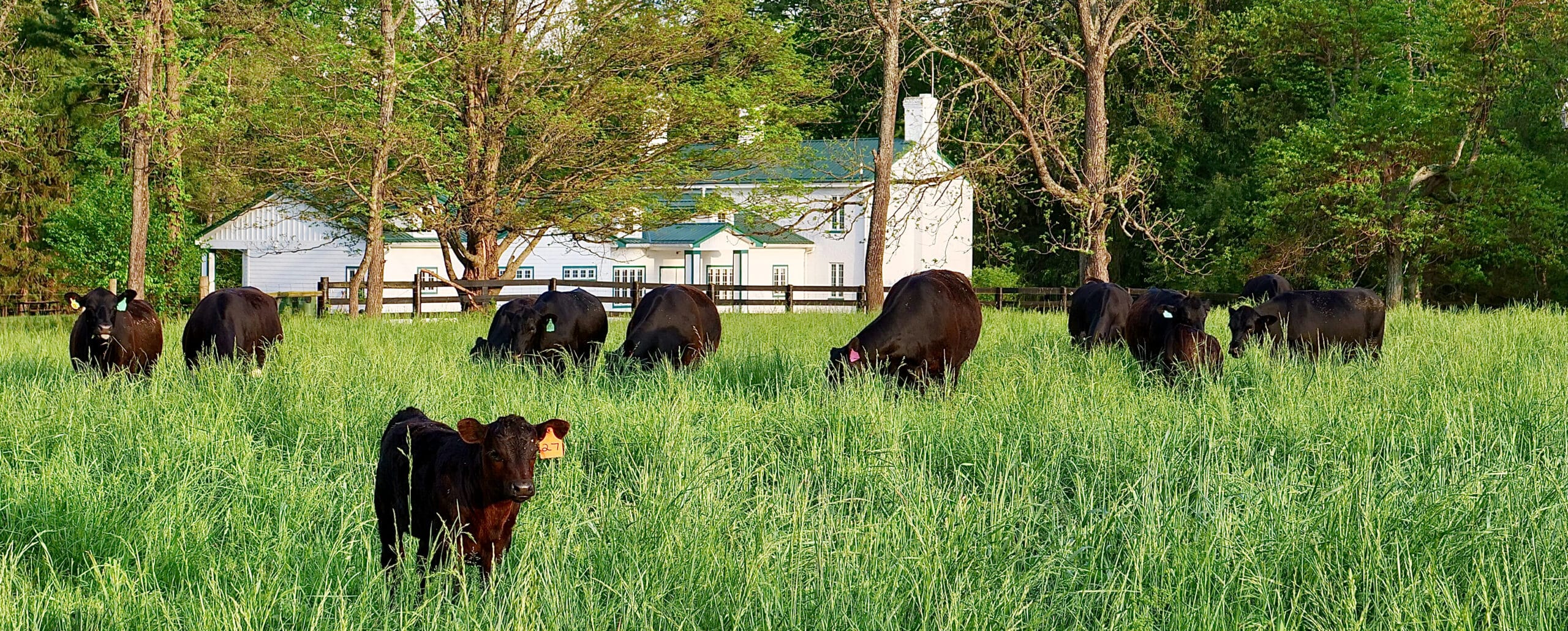
Around Greenacres - Spring 2024
Closing out the School Year
We had a fantastic spring educational season, providing programs for over 15,000 community learners since January at all of our locations. We offered lessons that ranged from Arts in the Natural World to Weather & Climate through our Arts, Agriculture, and Environment programming. Each of these programs is aligned with state standards. With the help of classroom teachers, the lessons are customized to provide authentic, real-world learning opportunities for students that bring their learning standards to life. This season we were able to provide programming for students across a multitude of learning disciplines, including the Arts, Generative Agriculture, and Environment!
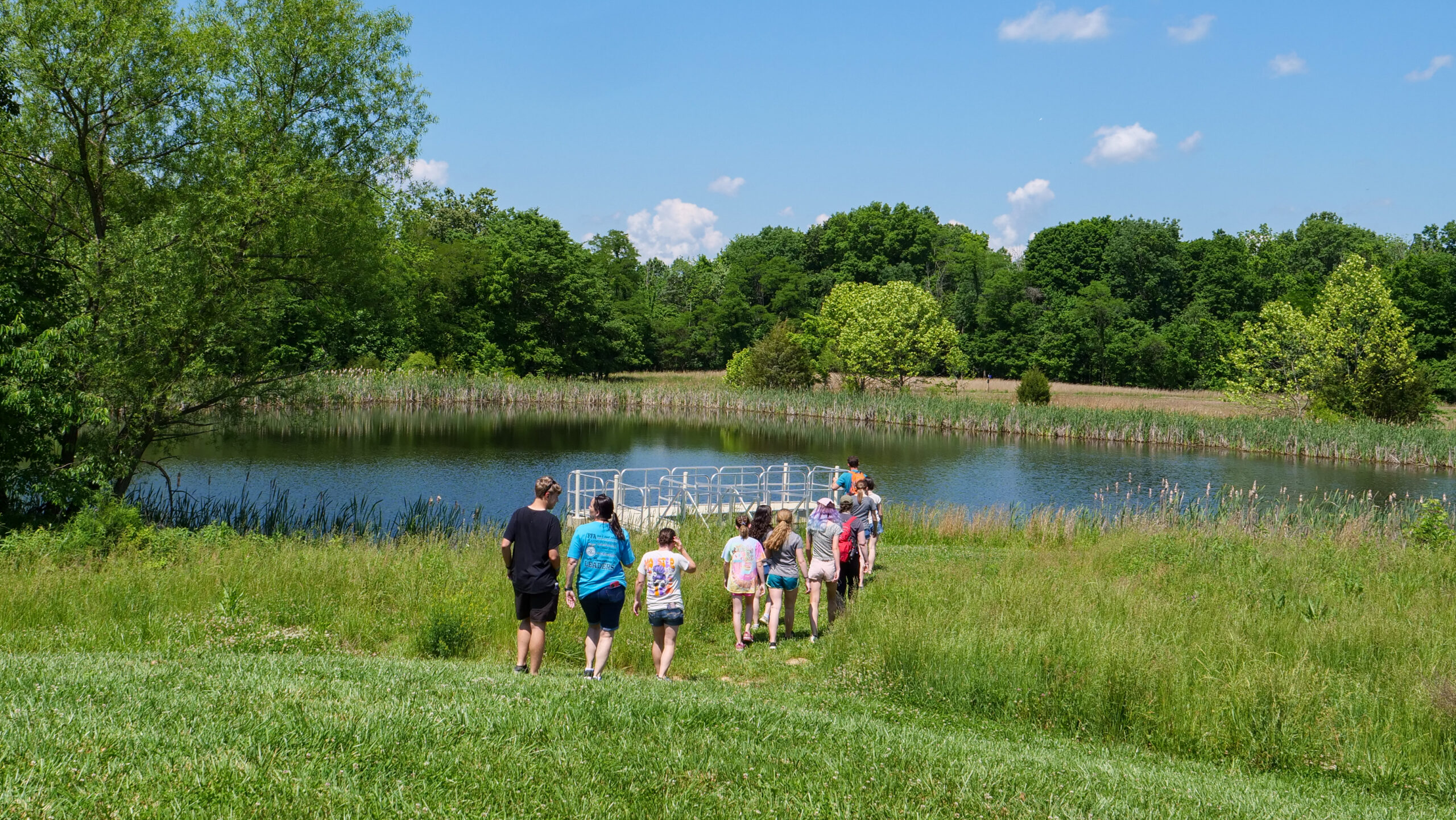
Looking ahead, we are excited to announce that coming this Fall, we will offer programs in our Equine Education department! As we develop and pilot this new programming, we will focus on bringing Math standards to life for 8th graders! If you know any math teachers who would be interested in having their students learn geometry, Pythagorean’s theorem through equestrian demonstrations, care, and management. Please contact Greenacres Education Operations at education@green-acres.org or 513-898-3262.
Spring Equine Programming
Springtime in the Equine department is a busy but exciting time for staff, students, and horses! Our 50 lesson students, including our Pony Club members, returned from the winter eager to develop their skills. Along with the spring flowers blossoming, our students blossomed in their respective levels and riding abilities. Our students showed focus and dedication in their riding and have progressed beautifully in their skills throughout the spring. Members of our Pony Club team competed at the Spring Bay horse trial and had a very successful first outing for the season!
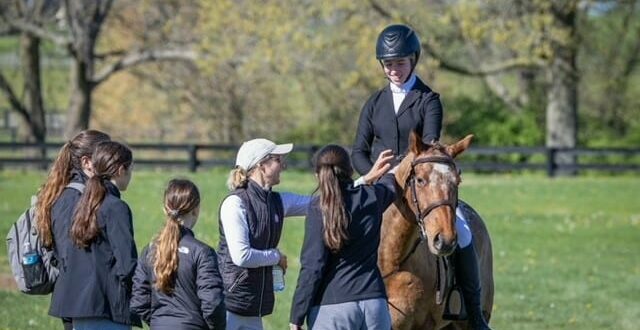
Along with teaching our riding lesson students, we held nine Exploring With Grace groups broken down into a three-part series. Each group came for three consecutive weeks where they learned about horse care and handling with the final week involving a bareback ride through an obstacle course. As excited for spring as students and staff are, the horses were even more thrilled to have the emergence of green across the fields as this meant the return to pasture grazing. The horses spend the winter in our all-weather dry lot and as spring grass returns, they begin the acclimation back on pastures. Once acclimated to grass, the utilization of rotational grazing begins. Rotating our horses within the pastures using electric temporary fencing to create smaller sections ensures an even graze and ample time to rest and regrow.
Monitoring Stream Health
This spring the Research Team started its first round of stream monitoring. Monitoring streams on the property is another way to check Greenacres’ ecological impact on the land and surrounding ecosystems. The data collected are stream macro-invertebrates and a few chemical and physical parameters. Macro-invertebrates were sampled using a method called kick netting. They then were collected, sorted, and identified down to order. After identifying what is present in the streams, a score can be generated based on what orders were found. Both North Branch Sycamore Creek and Raiders Run scored “excellent”. This indicates that both streams are healthy and have little pollution problems. The Research Team will continue to monitor the streams in Indian Hill and will soon be replicating this on Greenacres’ satellite properties.
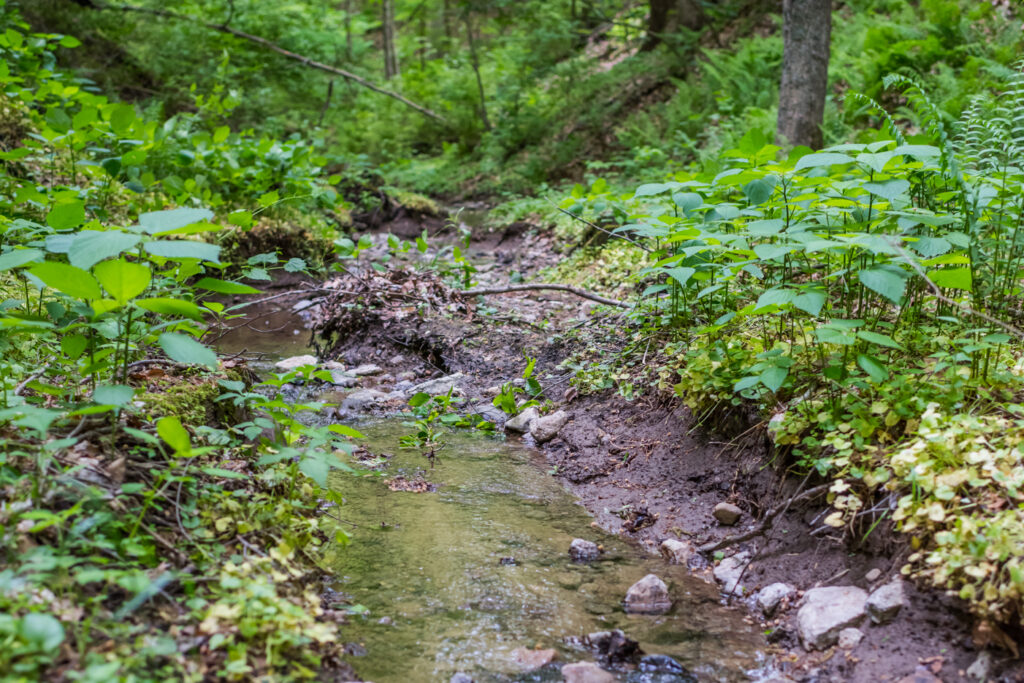
“Sampling macro-invertebrates is a great way to assess stream health because they are indicator species for water pollution levels.”
Chad Gibson, Senior Research Assistant
Spring and Summer Preparations
The Buildings and Grounds crew spent their spring preparing for the event season, as well as summer camps. They prepped the hiking trails around the property to ensure they are safe and enjoyable for summer camp activities. They also continuously maintained the Ley Field to keep it pristine and inviting for programs and events. This included transforming old split rail fence materials into mulch for use in the gardens. Preparations at the Arts Center included opening the fountains and moat. In addition to these large projects, the estate crew inspected and repaired the fence lines in our pastures to make sure the grazing season was ready to go into full swing all around the property! We are grateful for the team’s dedication to keeping Greenacres beautiful and safe for students, campers, guests, and staff.

Perennials at Michaela Farm
Each year at Greenacres Michaela Farm, there is an anticipation for the return of seasonal perennial crops which are plant species that are cultivated and live longer than two years without the need to be replanted each year. Perennial crops include fruit, nuts, herbs, and vegetables. Michaela Farm grows asparagus, rhubarb, strawberries, pawpaws, pears, lavender, oregano, spearmint, chives, sage, thyme, lemon balm, and rosemary.
Perennial crops offer several benefits to soil health. Their deep roots enhance soil structure and porosity as the slow decomposition of roots and leaves adds organic matter to the soil. They improve the soil’s water-holding capacity and provide continuous cover, which protects against erosion. And since they don’t need to be replanted every year, they minimize soil disturbance and support thriving soil organisms.
Once established, these crops typically require less maintenance, making them both time-saving and cost-effective for gardeners. As the plants mature, harvests usually increase each year. Most perennial crops, however, have a short harvest window, requiring timely picking to maximize yield.
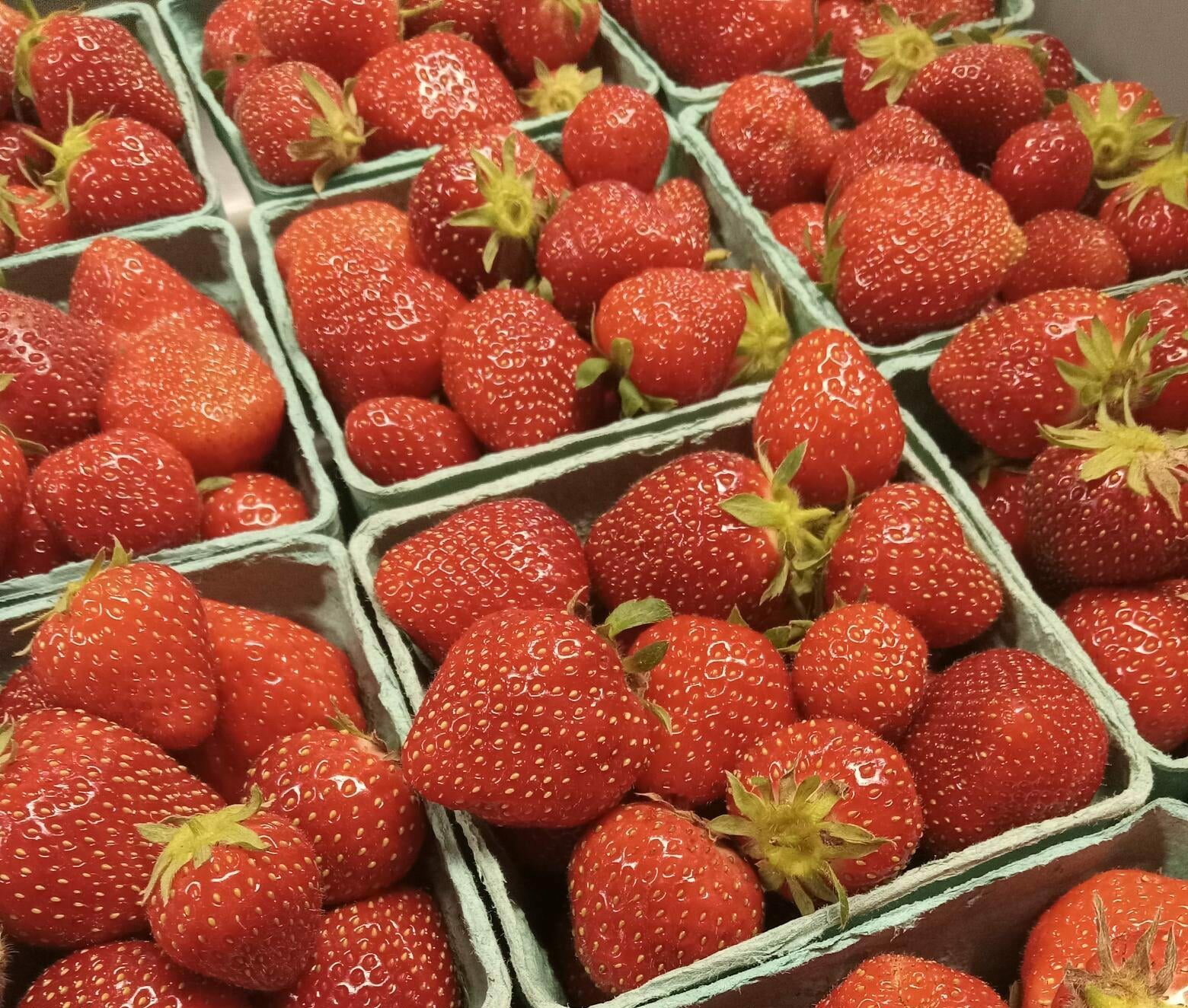
Ley Field Hedgerow
The heavy rains we received this Spring did not stop the Indian Hill garden team from accomplishing their goal of planting nearly 300 plants in an enormous hedgerow. With the help of various departments, the fencing that originally separated the Ley Field into two sections was removed and replaced with this incredible hedgerow, filled with native plants. The team meticulously selected species to attract pollinators, birds, and many other critters to the area. Not only is this native planting creating habitat and food for these insects and animals, but it’s also adding a beautiful educational space to the field! This new hedgerow has also created an exciting project for our research team, meticulously monitoring the pollinator activity in the area.
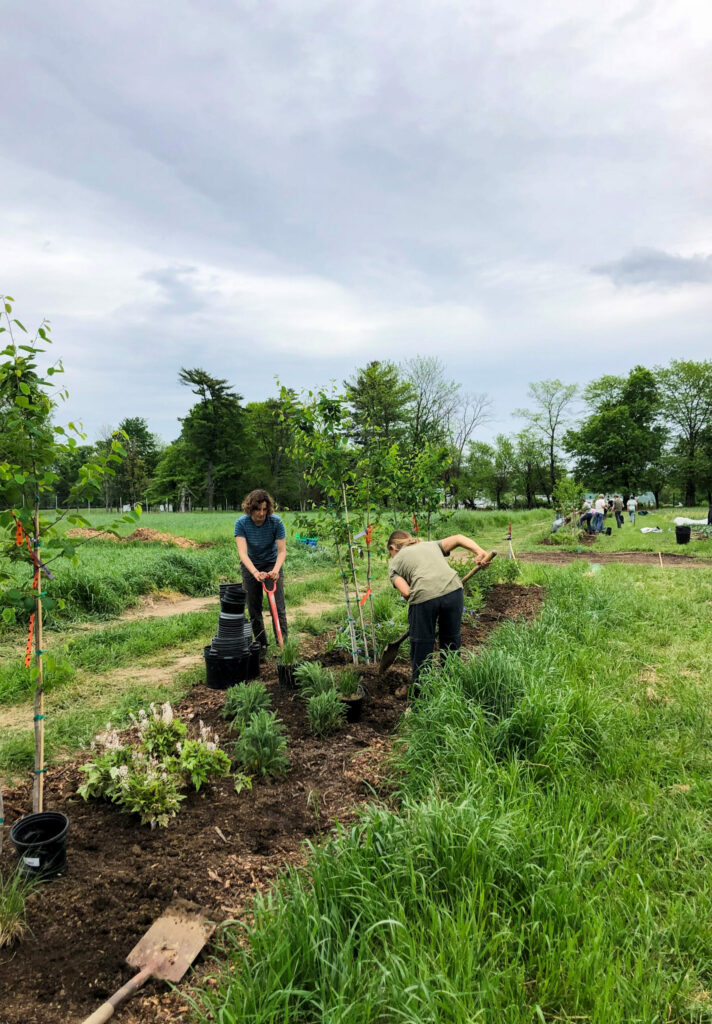
Included in the new hedgerow are:
- Serviceberry (Amelanchier arborea)
- Red Chokecherry (Aronia arbutifolia)
- Witch Alder (Fothergilla gardenii)
- Red Twig Dogwood (Cornus sericea)
- Fragrant Sumac (Rhus aromatica)
- Purple Coneflower (Echinacea purpurea)
- Butterfly Weed (Asclepias tuberosa)
- Yarrow (Achillea millefolium)
- Foamflower (Tiarella cordifolia)
- Culver’s Root (Veronicastrum virginicum)
- Blue Hyssop (Agastache x foeniculum)
- Prairie Dropseed (Sporobolus heterolepis)
- Spiderwort (Tradescantia ohioensis)
- Swamp Milkweed (Asclepias incarnata)
- Switchgrass (Panicum virgatum)
- Big Bluestem (Andropogon gerardii)
- Little Bluestem (Schizachryium scoparium)
- Yellow Tickseed (Coreopsis lanceolata)
- Yellow Twig Dogwood (Cornus sericea)
- Spicebush (Lindera benzoin)
- False Indigo (Baptisia australis)
- Button Bush (Cephalanthus occidentalis)
- Winterberry Holly (Ilex verticillate)
- Cardinal Flower (Lobelia cardinalis)
- Purple Bee Balm (Monarda fistulosa)
Nature's Classroom: Ley Field Garden Picnic
In late May, our Garden, Livestock, Research, and Events teams collaborated to create an enchanting evening at our Nature’s Classroom: Spring Ley Field Garden Picnic. This memorable evening brought families together with hands-on activities in the Greenacres Ley Field. Guests of all ages learned about pre-industrial ley farming, a sustainable agricultural practice that combines diverse plant species and animals to nurture soil health and foster ecological balance.
The garden team created you-pick stations throughout the ley field, where guests harvested fennel, peas, radishes, turnips, and their own flower bouquets! The research team set up a pollinator observation station and engaged participants with discussions about the vital role of pollinators in our ecosystem. The livestock team answered guests’ questions regarding animal production, with sheep and lamb nearby for observation. It was a wonderful way to kick off the outdoor season and we look forward to more events this summer and fall.
